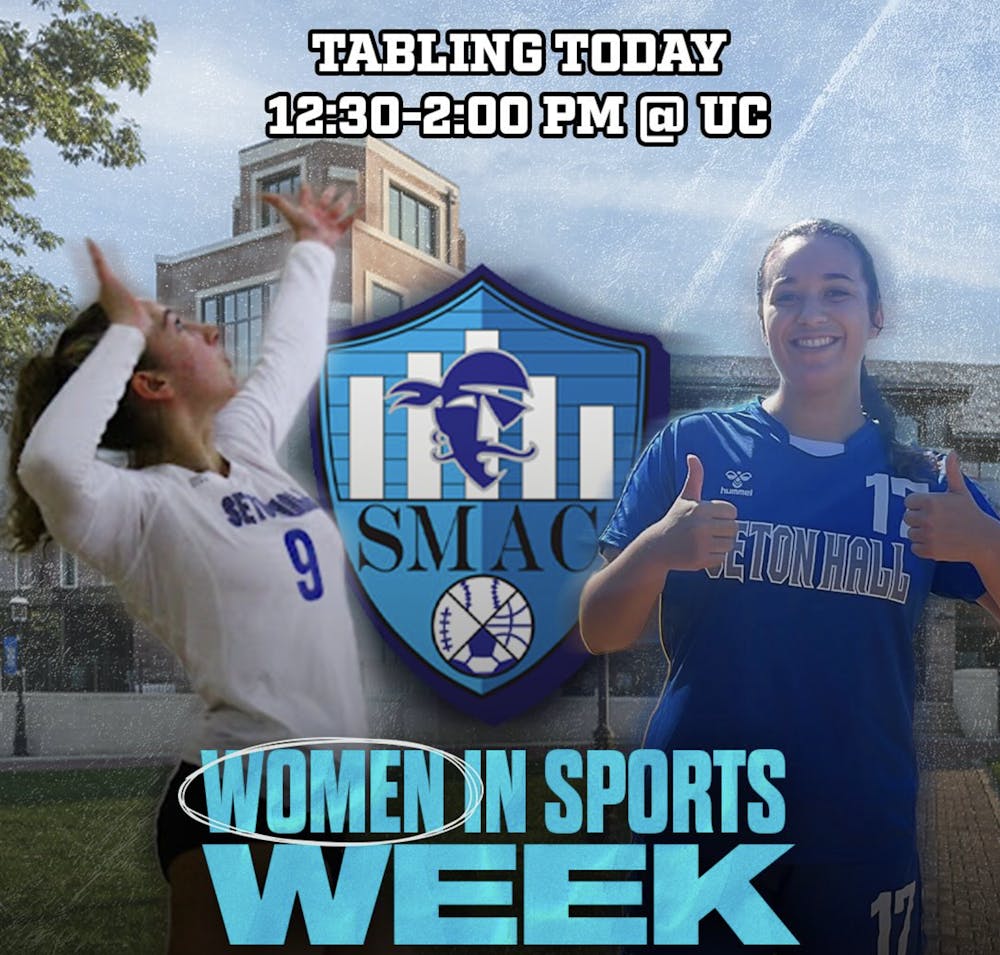The Sports Management and Analytics Club (SMAC) hosted a tabling event on National Girls and Women in Sports Day to highlight women in sports and to bring attention to female athletes on campus.
National Girls and Women in Sports Day is held every year during the first week of February to honor women for their achievements in the realm of sports.
Brea Horta, a business analytics graduate student and the captain of the women’s club soccer team, said that National Girls and Women in Sports Day is important to recognize because women do so many great things that tend to go unnoticed.
“To have this week to highlight the major things that women do in sports is just so important to get the word out there and have a separate time for them,” Horta said.
Nadia Pfarr, a senior sports management and finance major and member of the women’s club volleyball team, said that it is important for women to show that they matter because they’re “just as valuable as anybody else.”
“People have been quiet about women’s sports for so long and it is so important to be loud and to keep being loud, no matter how many people tell us to be quiet, because that's how progressive movement has been made in a lot of areas for women,” Pfarr said.
As a female athlete, a holiday like this means a lot to Pharr. “For so long there was such little representation of [women in sports] and now to see recognition on social media and on campus grow, it just makes me so happy,” Pfarr said.
Being a woman in sports is challenging. Pfarr says that imposter syndrome is the most difficult thing she faces.
“There’s this invisible barrier of me having to prove myself more than most men,” Pharr said.
However, other women have raised Pfarr, helping her through her challenges.
“As I work more and more, I learn that more and more girls are interested in sports and that motivates me to keep going,” Pfarr said.
Community is another driving force for women to overcome imposter syndrome and other challenges in sports. “A big part of [overcoming challenges] is having community and that support system, seeing other women in this industry pushing each other and celebrating wins,” Pfarr said. “I love the quote ‘they clapped so loud that I didn’t notice who didn’t’ because that’s how I feel with my girls around me.”
Both Horta and Pharr are often the only women in the room during SMAC events, however, according to Horta, rather than feeling intimidated by this, she feels empowered by her ability to inspire other girls to get involved in sports management.
“What we’re trying to do is bring more girls in,” Horta said. “It’s not intimidating to me anymore because I know if a girl comes in, I’m there for them.”
Responding to criticism can be a difficult task for a female athlete. Pfarr said she suggests laughing it off. “Nothing I say is going to change the opinions of other people, so I just respond with my actions,” Pfarr said. “I show them how successful I can be, and I show them through hard work.”
According to Pfarr, young women find themselves to be hesitant to pursue sports because of their gender.
“You wouldn’t be dreaming about it if you couldn’t do it,” Pfarr said. “It’s you versus you, and no one else’s opinion matters.”
National Girls and Women and Sports Day is not just one week for SMAC—they will be hosting Jane McManus, Seton Hall professor and sports journalist, on April 23, to further their efforts to draw attention to the world of women’s sports.
Not only is SMAC hosting events to bring attention to female athletes, but, according to SMAC member Isaiah Mercado, a freshman sports management and marketing major, SMAC has so much more to offer.
“SMAC is a great way to expand your network,” Mercado said. “Sports management is growing fast and the more we engage the community, the more people we will bring into the club and the industry.”
Lakyn Austin is a writer for The Setonian’s Campus Life section. She can be reached at lakyn.austin@student.shu.edu.





